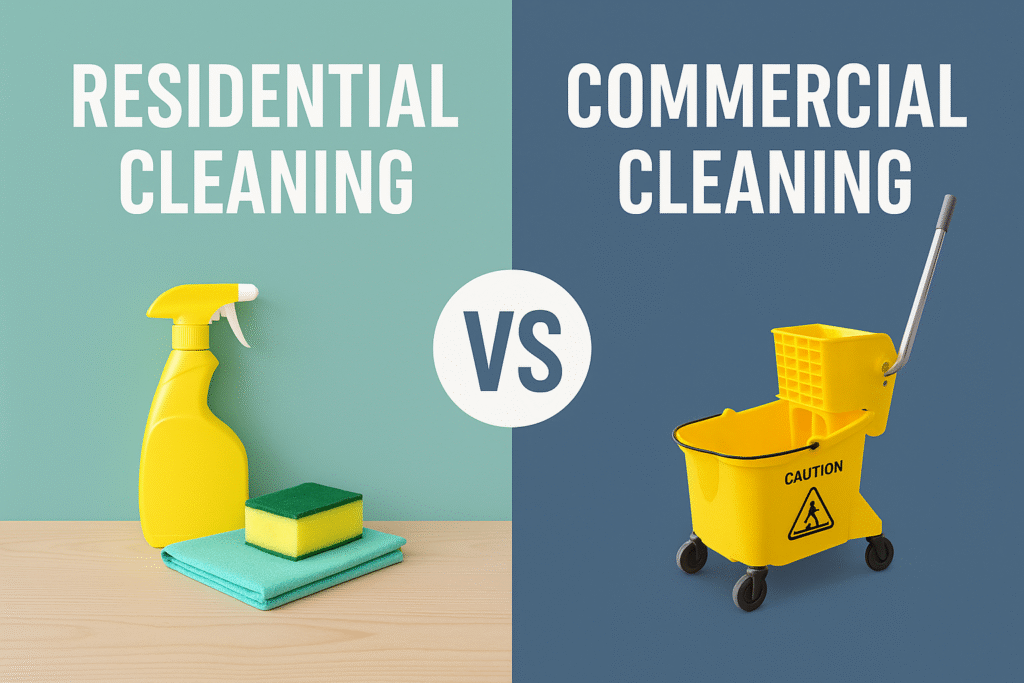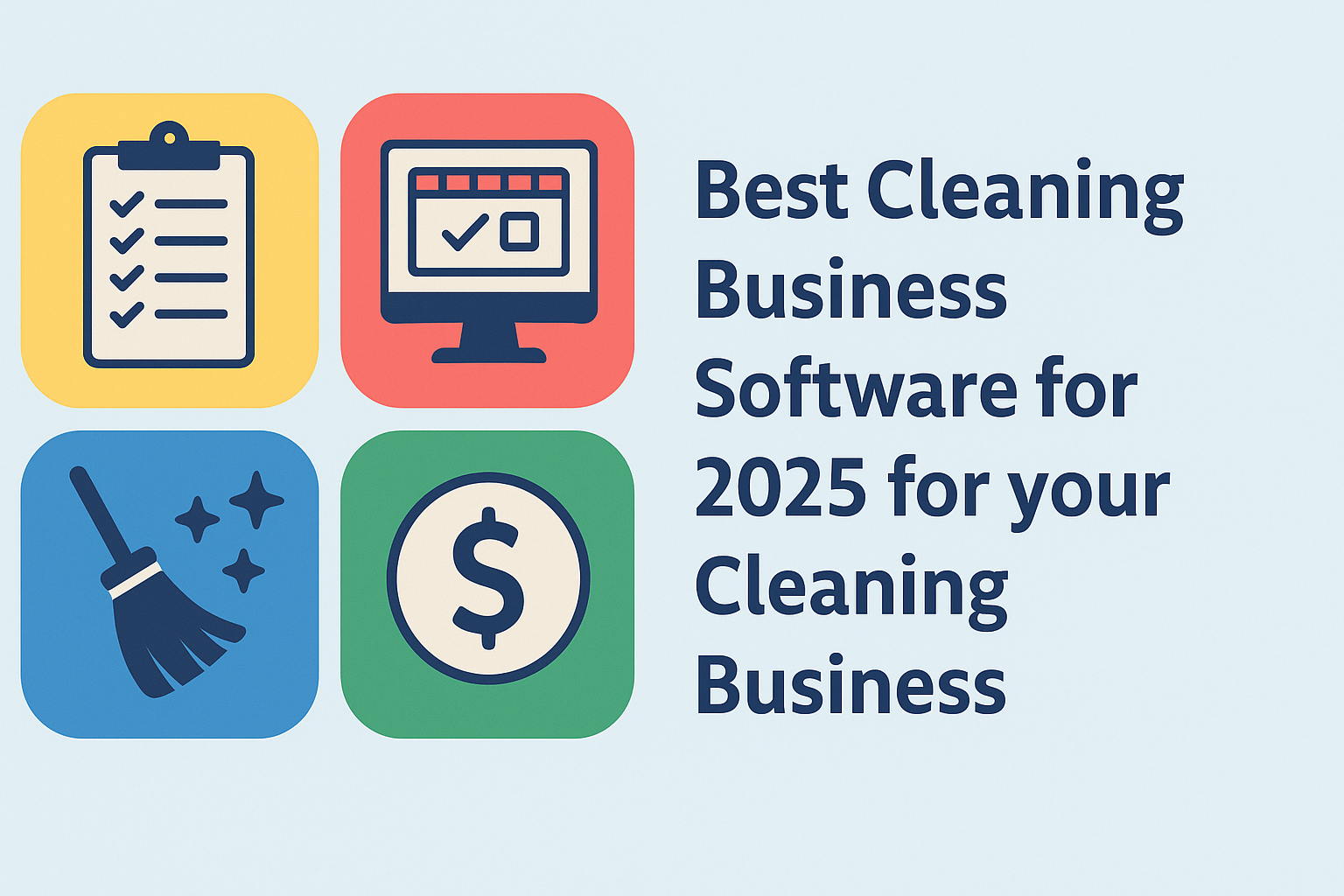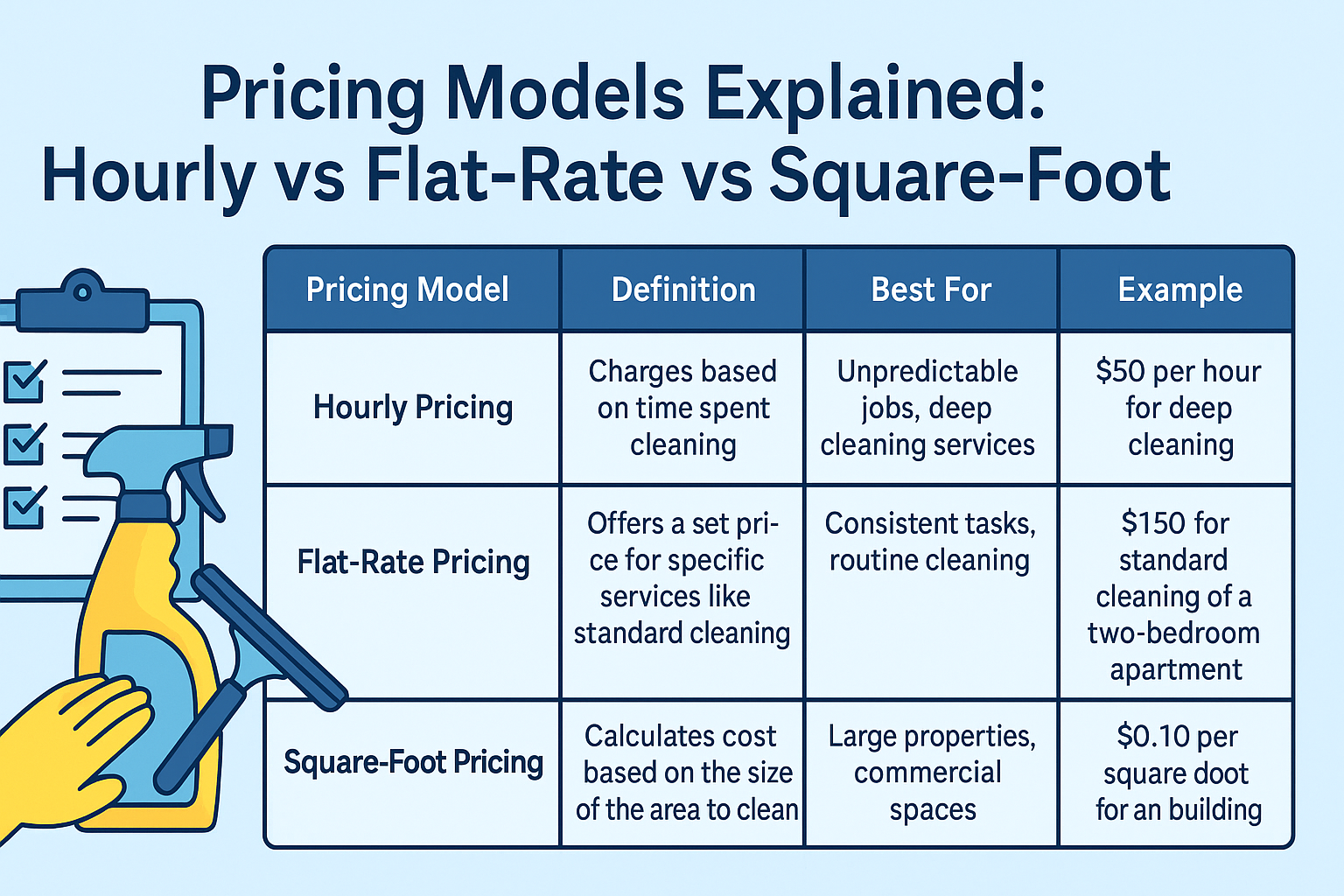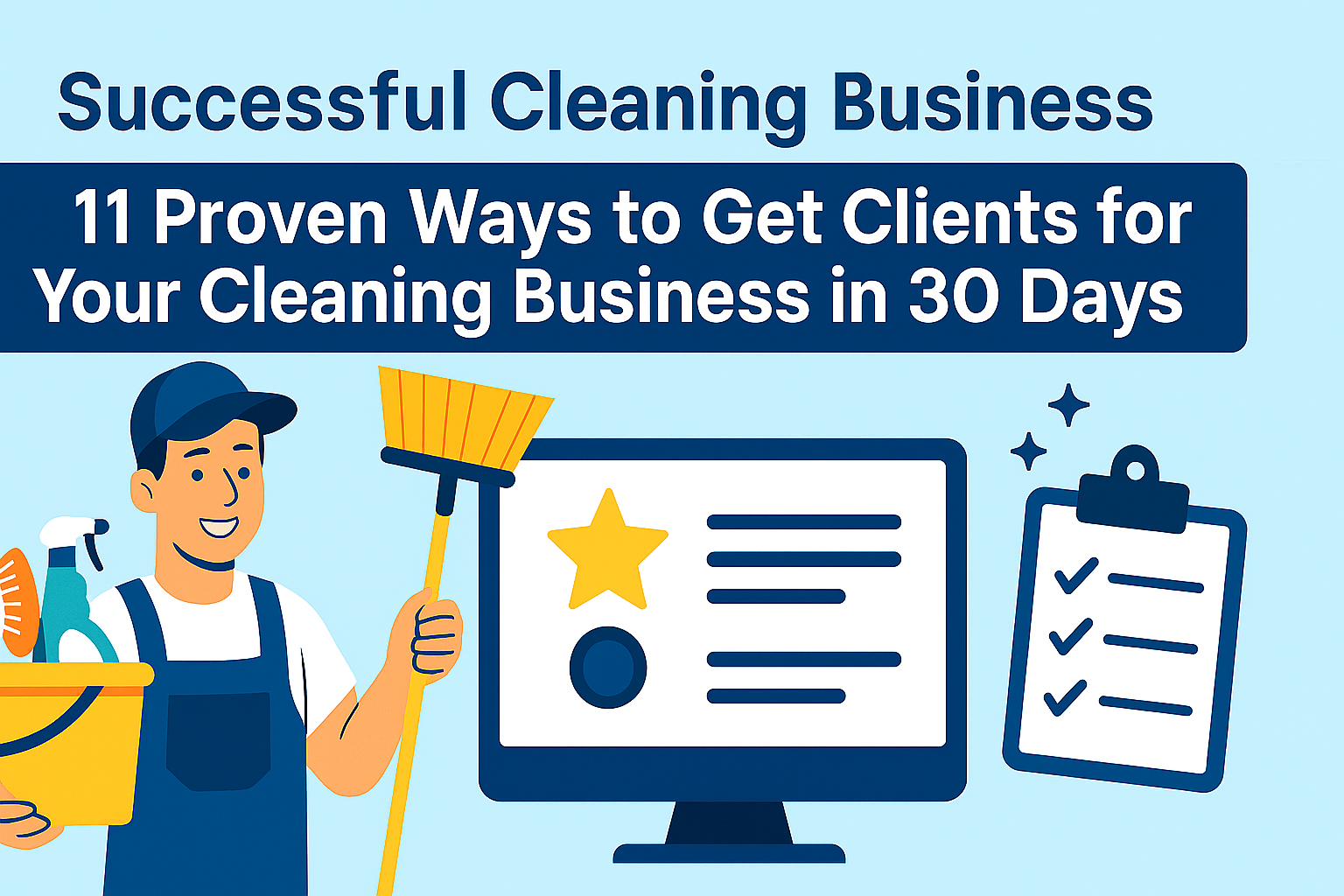Residential vs. Commercial Cleaning: Which Path Should You Take?
Choosing between residential and commercial cleaning is one of the most important decisions you’ll make when starting your cleaning business — and the right choice depends on your goals, resources, and long-term vision.
Residential vs. Commercial Cleaning: Which One is Right for Your Business?
If you’re thinking about how to start a cleaning business, you’ve probably realized there’s more than one path to take. You can go the residential route — cleaning houses, apartments, vacation rentals — or you can focus on commercial spaces like offices, retail stores, and even industrial facilities.
Both options can be incredibly profitable, but they come with very different day-to-day realities. If you’re serious about building a business that fits your goals, lifestyle, and strengths, choosing the right starting point matters.
Let’s explore the real differences between residential cleaning vs commercial cleaning — and how to figure out which is the best cleaning business to start for you.
Why Residential Cleaning Might Be the Best Way to Start a Cleaning Business
When most people think of cleaning services, they picture residential jobs: homeowners or renters hiring someone to clean their living space. If you enjoy working directly with people and building personal relationships, residential cleaning might be your perfect entry point.
Homeowners often want cleaners they can trust long-term, not just one-off services. Plus, the hours are typically more flexible. You might clean while clients are at work during the day, or schedule morning and afternoon appointments based on your availability.
Another huge advantage: residential cleaning is one of the best low-cost business ideas. If you’re wondering how to start a cleaning business cheap, residential services often allow you to get started with just basic supplies — a vacuum, some quality cleaning solutions, and reliable transportation. No expensive equipment, no big overhead.
That said, residential cleaning can be detail-heavy. Clients notice the little things — a missed spot, a forgotten corner — and expect a personal touch. If you’re good with communication and willing to go the extra mile, residential cleaning can build a loyal customer base fast.
Why Commercial Cleaning Might Offer Bigger Growth Potential
Commercial cleaning is a different world altogether. Instead of working directly with homeowners, you’re working with office managers, real estate companies, or facilities directors. The spaces are larger, the jobs more routine, and the contracts often more lucrative.
One of the biggest upsides? Stability. Businesses usually sign ongoing contracts — weekly, biweekly, or nightly cleanings — giving you steady, predictable income. A few commercial accounts can sometimes outperform dozens of residential ones.
However, starting a commercial cleaning company comes with slightly higher startup costs. You might need industrial vacuums, floor buffers, or other professional-grade equipment. But if you follow smart commercial cleaning startup tips, you can land your first contracts without breaking the bank.
Plus, commercial work typically happens after business hours, meaning nights and weekends. This is ideal if you’re looking to grow a business while keeping your days free or if you’re hiring nighttime crews.
Just know that landing commercial cleaning contracts often requires more professional branding, insurance, and the ability to meet compliance standards. It’s more formal, but the payoffs can be huge once you’re established.
Residential vs. Commercial Cleaning: Which Is the Best Cleaning Business to Start?
Choosing between residential cleaning vs commercial cleaning comes down to your personal goals.
If you want flexibility, fast startup with low costs, and direct relationships with clients, residential cleaning is probably your best move. It’s hands-down one of the best low-cost business ideas out there today, and perfect if you’re just learning how to start a cleaning business cheap.
If you’re thinking bigger from the start — stable contracts, building a team, scaling into a multi-location operation — commercial cleaning might be the right fit. It requires a bit more investment and patience upfront, but the long-term returns can be massive.
And here’s the truth: you don’t have to choose forever. Many successful cleaning entrepreneurs start with residential jobs to build cash flow, then expand into commercial accounts once they have more systems in place.
The most important thing? Start smart. Start now.
The cleaning industry is growing faster than ever, and there’s a place for you — whether you’re scrubbing living rooms or shining up corporate offices.
Ready to Start Your Cleaning Business the Smart Way?
If you’re serious about building a cleaning business that actually works — not just one that survives a few months — you need more than just good intentions.
Inside our Cleaning Business Mastermind, we show you exactly how to launch your business, choose your best market, price your services for profit, and land your first clients — step-by-step. You’ll also get access to proven templates, contracts, and marketing systems built specifically for residential and commercial cleaning startups.
Or if you’re just getting your feet wet, grab our free resource:
“Residential vs. Commercial Cleaning Startup Checklist” — your first step toward starting a profitable cleaning business the right way.
Don’t wait until you “feel ready.” The right time to build your future is now.







